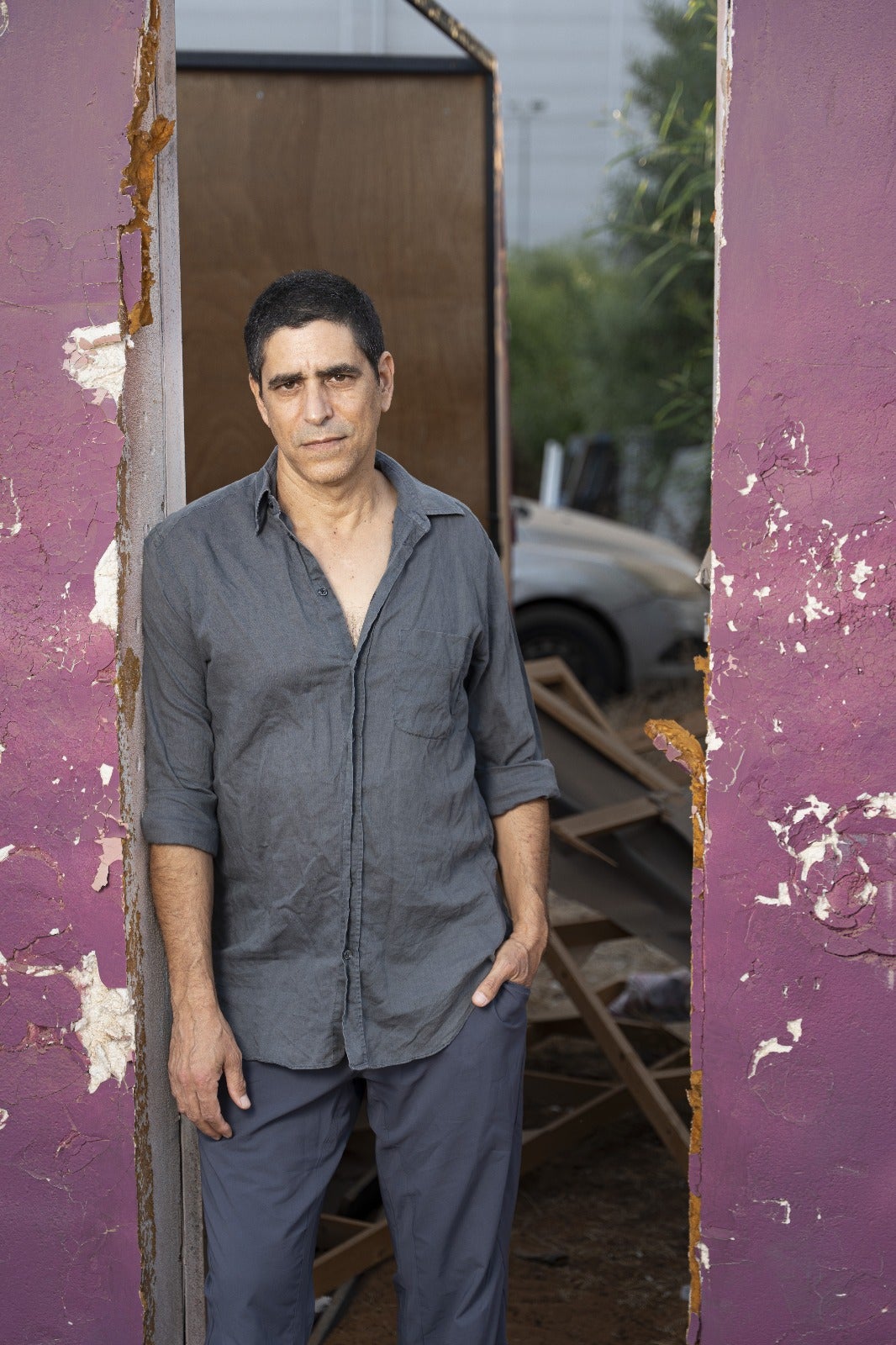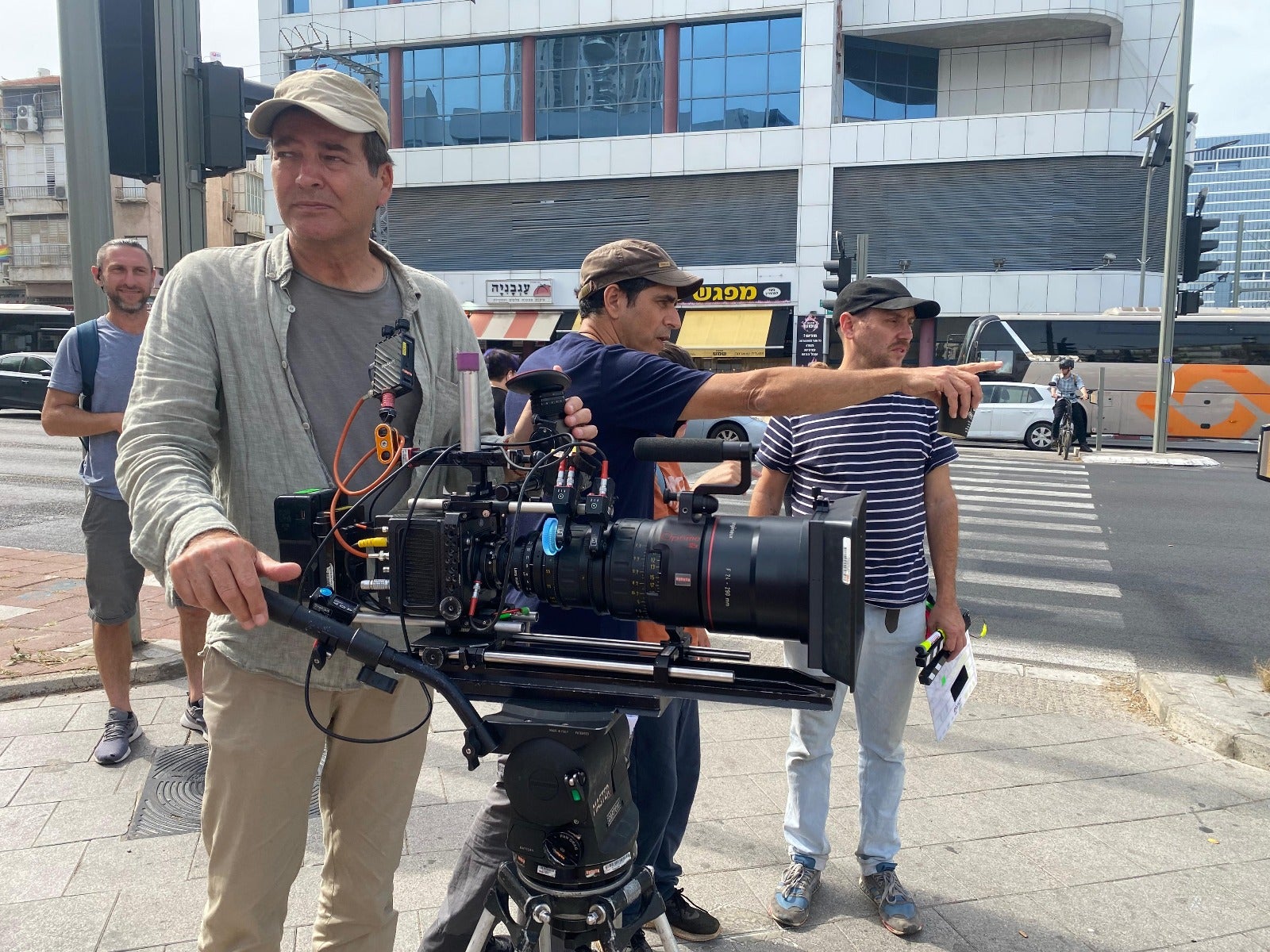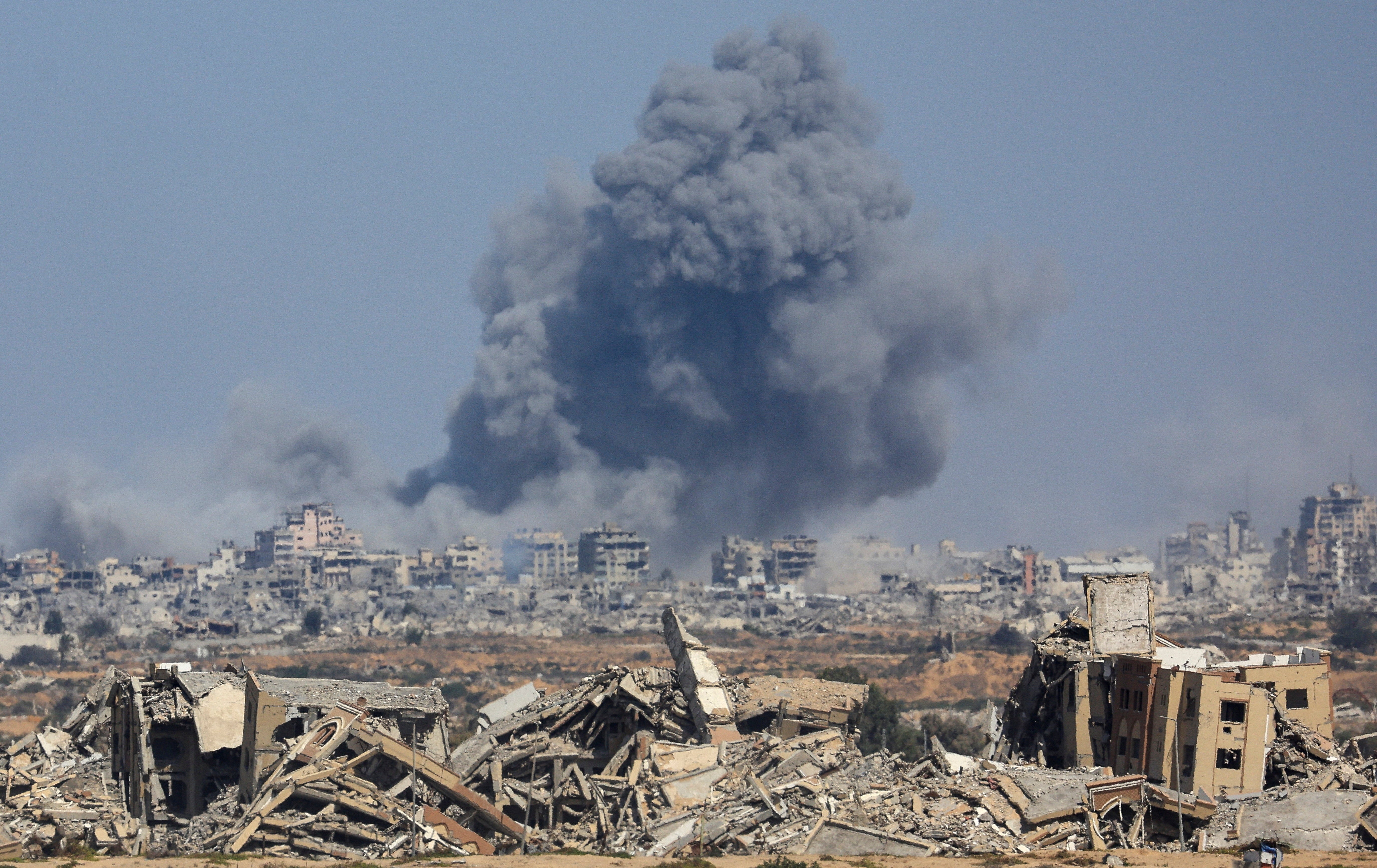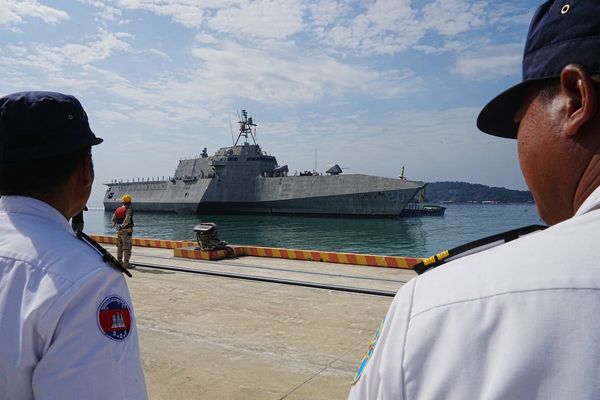Israeli film director Shai Carmeli-Pollak has a striking image pinned to the wall of his office in Kfar Sava. The picture, designed by his late friend and artist Dudu Geva, depicts a cartoon duck being pierced open with a knife.
“It is like what’s happening now. An apocalypse,” he tells The Independent. “He has many knives stuck in his body but is still optimistic. That’s how I feel.”
He has reason to feel both joy and fear. Last week, his film The Sea swept up five trophies at Israel’s national film awards, The Ophirs, including the top prize for Best Picture.
It follows the story of a 12-year-old Palestinian boy Khaled, played by Muhammad Gazawi, who dreams of seeing the Mediterranean for the first time in his life. However, he is turned away at a military checkpoint while on a school trip, due to what authorities say is an invalid permit.
The film places Palestinian lives at its core, which has caused anger in Israel. Within hours of the award being given out, Israel’s culture minister Miki Zohar threatened to cut funding for the ceremony, blasting the win as a “slap in the face of Israeli citizens” and calling the event “embarrassing and detached”.
But Carmeli-Pollak says it is the “terrible reality of the government that this person belongs to, which is now creating a genocide, and we can’t deny it. We can’t blame films.”
Last month, a UN report concluded that Israel is committing genocide. Israel says the charge is “false” and “distorted” but rights groups, including Amnesty International, have backed the claims.

The Sea is not the only recent film to critique Israel that has been met with backlash. Earlier this year, No Other Land, a story following Palestinian activist Basel Adra’s resistance to forced displacement from his home in Massafer Yatta, won the Oscar for Best Documentary Feature Film.
The reaction in Israel was similar: Zohar called it “a sad moment for the world of cinema” and “sabotage against the State of Israel”.
A Palestinian activist and father of three featured in the film, Awdah Hathaleen, was killed by an Israeli settler weeks after the film’s success. Adra has also reported recent raids on his home in the West Bank.
Reflecting on his work, Carmeli-Pollak says: “Making a film like this isn’t simple to do, even before the war. There’s always a spirit here that there is too much support for dissident films, which are not for the Israeli public but to go to audiences outside Israel and show how terrible we are. It’s always like this, but now it’s even stronger.”

Reacting to Zohar’s comments about his film, Carmeli-Pollak says it’s become “tradition” for the culture minister to speak out against projects that he disapproves of. “I would tell him to open his mind and watch the film before he speaks,” he says.
He credits the Israel Film Fund for its support in backing the film, but worries it may be “impossible” to operate in an environment with such constraints on artists.
“I’m really happy I had the chance to do this and to give a voice to people whose voice is not heard very much in our society.”
The Association for Civil Rights in Israel is investigating whether the ministry is able to carry out Zohar’s threat to cut funding, according to The Jerusalem Post.
Despite the backlash, Carmeli-Pollak says the response to The Sea has been overwhelmingly positive.
“Anyone without a political perspective who watches this film – even Israelis – can see it’s a story about someone being discriminated against just because of the place where they were born. It’s more complicated than his [Zohar’s] reaction.”
.jpeg)
He adds that Israelis are “not like these people with horns, they’re also ordinary people who live in this arrangement”. He believes art can help foster the connection between Israelis and Palestinians.
During the film, Khaled travels to the coast to see the waters of the Mediterranean for himself, but does not know the way or how to speak Hebrew. Khaled’s father, Ribni (Khalifa Natour), is an undocumented labourer and embarks on a high-risk search for his missing son after abandoning his job.
“I was worried people wouldn’t want to come and watch the film because it’s about a Palestinian child. But there is no other way to do this. And people have reacted emotionally; it touches my heart. They shed a tear because they see that this is a child who uses his will to go to the sea.”
Carmeli-Pollak, who was born in Haifa, committed to raising awareness about the plight of Palestinians after first visiting the West Bank, aged 32.
“Life for Palestinians under occupation is terrible. I feel responsible because I live under this regime that discriminates between people just because of their ethnic origin,” he says.
“Looking at the history of the Jewish people, it’s something we suffered a lot in the past and it’s unacceptable and it needs to be changed now, not tomorrow and not in the future.”
He adds: “This is not just a Palestinian story, it’s the story of Israeli society.”

Accepting his award, Gazawi, 13, said: “I wish for all the children of the world, everywhere, to have the same opportunity – to live and dream without wars.” He was discovered when the director opted to audition Palestinian children from a Thai boxing club filled with “tough” young people. Gazawi had no previous acting experience and spoke no Hebrew when he was recruited.
“In the beginning, I didn’t notice him,” Carmeli-Pollak says. “I filmed him and came back home and watched the footage and thought: ‘Wow. This kid is very, very, talented.’”
However, the director says that many Israelis don’t understand the extent of suffering in Gaza and the West Bank, as “there is a really big problem with Israeli media”.
The film’s Palestinian producer, Baher Agbariya, said in a statement read at the Ophirs: “This film was born from love for humanity and cinema, and its message is one – the right of every child to live and dream in peace, without siege, without fear, and without war.”
Natour, who played Khaled’s father, did not attend the awards, citing “the army’s entry into Gaza and the genocide that frightens me greatly”.

The controversy surrounding the film comes after Hollywood actors announced a cultural boycott of Israeli film institutions.
The pledge, circulated by an organisation called Film Workers for Palestine, has been supported by actors including Javier Bardem, Olivia Colman, Emma Stone, Riz Ahmed and over 4,000 more industry professionals. Global entertainment giant Paramount criticised the move, saying it did not agree with “silencing individuals”.
But Carmeli-Pollak, who attends both pro-Palestine protests and protests campaigning for the release of hostages, says that working with Palestinians to make the film gave him a glimpse into life in coexistence. He has not been able to sleep, enjoy films, or live a normal life since the intensity of the conflict and the horror of the 7 October attacks.
“The filming itself was a very special experience,” he says. “We were a joint crew – Israelis and Palestinians working together, on a modest budget, with the shared intention of doing the best work we could.
“Hebrew and Arabic blended naturally on set, and in a way, we ourselves made the same journey that the film portrays – moving between Palestinian villages and Tel Aviv. It was a truly unique and moving experience.”
Trump warns Hamas faces ‘complete obliteration’ as Gaza peace talks begin in Egypt
Trump complained Netanyahu was ‘so negative’ after Hamas partially accepts peace deal
Gaza flotilla latest: Greta Thunberg among 70 others set to be deported to Greece
Gaza flotilla activists allege they were abused while detained in Israel
Trump says Israel agrees to ‘initial withdrawal line’ in Gaza - but Hamas unconfirmed
Families in Gaza hold breath over Trump’s peace plan to end bloodshed







